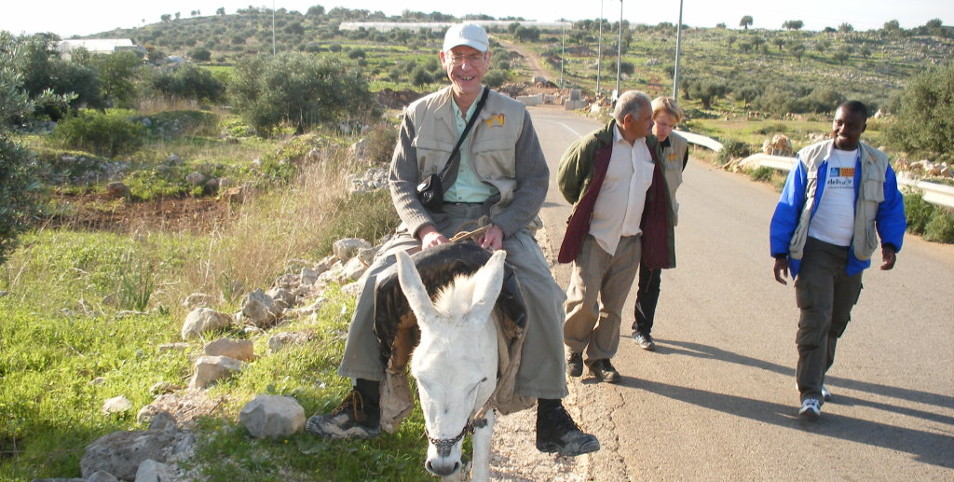Bakair Zaben drove us to Naslat Isa, his sleepy little village. He hasn’t always been a taxi driver; he used to own a successful furniture business. Naslat Isa hasn’t always been a sleepy little village; it used to be bustling market town. What has happened?
The Wall.
One day in September 2003, at four o’clock in the morning, Bakair Zaben was asleep on the roof of his house, when he was awakened by the sound of an engine. He went out to find a bulldozer about to demolish his furniture shop. An Israeli army officer told him he had one hour to remove all his stock from the shop.
“One hour! You must be crazy,” said Bakair. “I have more than 3000 pieces.”
“Not my problem,” replied the officer.
Bakair rounded up his friends and family and they began frantically removing what they could from the shop. After an hour, they were not finished and several items had been damaged. But in came the bulldozer. Finish. Within five hours, 170 shops and businesses had been demolished in Naslat Isa. This was to clear a space near to the Separation Barrier, the Wall which the Israelis were about to build.
When the Wall was finished, it cut through houses and streets, dividing the twin villages of Nazlat Isa and Baqa Al-Ghabiya from each other. Neighbours could no longer pop next door. Grandchildren could no longer visit their grandparents. Israelis could no longer cross the border to shop. Businesses, like Bakair Zaben’s, were destroyed. 600 family incomes disappeared.
Since occupying the West Bank in 1967, the Israeli government had encouraged people on the West Bank to seek work in Israel, thus making the Palestinian economy increasingly dependent on Israel. In 2003, 99% of the men in Naslat Isa worked in Israel. Now overnight they were denied access to their employment. Today, only about 4% of men from Naslat Isa brave the infamous Ephraim Terminal to work in Israel and this is a two hour commute instead of two minutes.
Before 2003, merchants from all over the West Bank used to come to Naslat Isa to sell their wares to both Palestinians and Israelis. In 2003 many of their businesses were destroyed and the others lost many of their customers. Today Naslat Isa is full of rubble and closed shops.
And life is diminished. People in Naslat Isa need to obtain special permits to visit their relatives across the Wall, in Israel, and these permits are available only for special occasions. To obtain a permit to go to a wedding, the invitation needs to be produced. To go to a funeral, documentary proof of the death is necessary. Israeli Palestinians can come more freely to Naslat Isa but it takes two hours, and many are afraid of being followed by Israeli security. So they don’t come; they just speak on the ’phone.
Bakair Zaben has not seen his great-aunt since 2003. He was unable to attend his neice’s wedding. A neighbour’s aunt was dying. She was allowed to visit, but she had to take the long route, taking two hours. No humanitarian allowance was made.
The Separation Barrier has not only brought demolition and division, but also diminution. Life for Bakair Zaben has shrunk. The Wall has cut deep.
